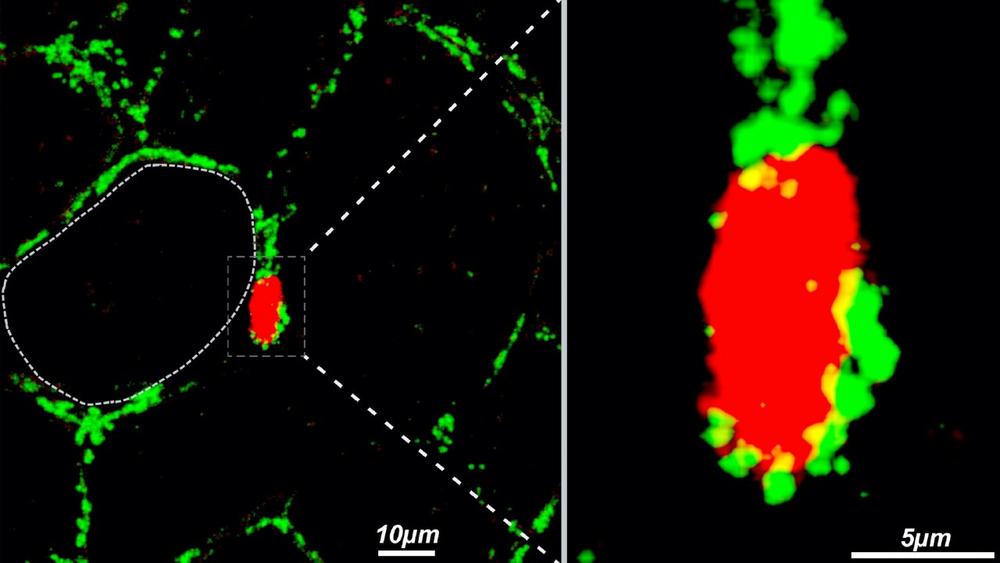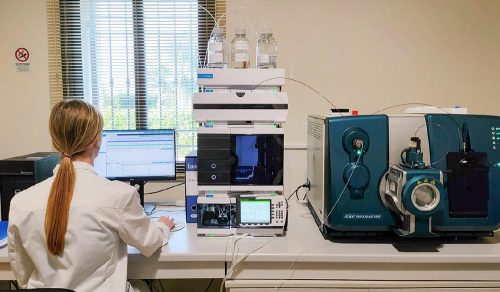
Obesity and Mitochondria Transfer: is Heparan Sulfate the Way In?
In recent published research**, researchers from the Brestoff and Teitelbaum Labs demonstrated that adipose-tissue resident macrophages acquire mitochondria from adjacent adipocytes using HS. This process occurs in healthy conditions but is impaired in obesity. Further they have shown that genetic disruption of mitochondria uptake by macrophages reduces energy expenditure and increases diet-induced obesity in mice, indicating that intercellular mitochondria transfer to macrophages mediates systemic metabolic homeostasis.
Obesity is an increasingly common metabolic disease that affects over 40% of adults and 18% of children and adolescents in the United States and is an independent risk factor for the development of many other disorders such as type 2 diabetes, cardiovascular diseases, and cancer.
Head of the group – Professor Jonathan Brestoff commented “Mitochondria are the power plants of cells, and it has long been assumed that they are made in one cell and never leave. We discovered that is not really the case and found that fat cells give some of their mitochondria to an immune cell type called macrophages. In obesity, this transferring of mitochondria between cells goes awry, contributing to faster weight gain and worse metabolism. Using a tool called CRISPR, we screened the entire genome and figured out that cells trade mitochondria using a special type of sugar called heparan sulfate, which we think acts like a loading dock for receiving cargo like mitochondria. When we delete heparan sulfates on macrophages, mice get fat. This suggests to us that it is probably good for cells to trade mitochondria with each other. Our team is now trying to figure out how this mysterious and surprising process of mitochondria transfer works because we believe we can harness this biology to treat some human diseases.”
Dr Wentong Jia, a postdoctoral fellow at the Brestoff lab added “The cell surface expression of heparan sulfate, a glycosaminoglycan required for mitochondria uptake in macrophages, depends on a key glycosyltransferase named EXT1. The 10E4 antibody from AMSBIO has helped us verify that we’ve successfully prevented Heparan Sulfate from being synthesized in cells that lack EXT1.”
“I find it fascinating that cells use heparan sulfates to take up mitochondria,” says Rocky Giwa, a PhD candidate in the Brestoff Lab. “I wonder if there’s a correlation between the amount or composition of heparan sulfates and a cell’s ability to efficiently take up mitochondria from other cells. Since the various HS antibodies have unique specificities, the different clones can help us start to attack that question.”
AMSBIO offers a comprehensive range of high quality Heparan Sulfate (HS) antibodies from F69-3G10, F58-10E4 and JM403 clones, which are ideal for targeted binding of HS in Heparan Sulfate Proteoglycans (HSPG) research.
Heparan sulfate is a highly sulfated polysaccharide, synthesized as the glycosaminoglycan component of heparan sulfate proteoglycans (HSPGs), that is widely distributed on cell surfaces and basement membranes in mammals. It participates in important biological processes due to it displaying specific interactions with many biologically active proteins. AMSBIO is a leading supplier of high quality Heparan Sulfate antibodies from the important clones (JM403, 10E4 and 3G10), which are ideal tools for investigating the binding of HS in different areas of biological research including infection, cancer, and cell signalling.
For further information on high quality Heparan Sulfate antibodies please visit https://www.amsbio.com/news/us-research-reveals-the-role-of-heparan-sulfate-in-obesity/ or contact AMSBIO on +31-72-8080244 / +44-1235-828200 / +1-617-945-5033 / info@amsbio.com.
Founded in 1987, AMS Biotechnology (AMSBIO) is recognized today as a leading transatlantic company contributing to the acceleration of discovery through the provision of cutting-edge life science technology, products and services for research and development in the medical, nutrition, cosmetics, and energy industries. AMSBIO has in-depth expertise in extracellular matrices to provide elegant solutions for studying cell motility, migration, invasion, and proliferation. This expertise in cell culture and the ECM allows AMSBIO to partner with clients in tailoring cell systems to enhance organoid and spheroid screening outcomes using a variety of 3D culture systems, including organ-on-a-chip microfluidics. For drug discovery research, AMSBIO offers assays, recombinant proteins, and cell lines. Drawing upon a huge and comprehensive biorepository, AMSBIO is widely recognised as a leading provider of high-quality tissue specimens (including custom procurement) from both human and animal tissues. The company provides unique clinical grade products for stem cell and cell therapy applications. This includes GMP cryopreservation technology, and high-quality solutions for viral delivery (lentivirus, adenovirus, and adeno-associated virus.
AMS Biotechnology Europe Ltd
Herriotstrasse 1
60528 Frankfurt
Telefon: +49 (69) 779-099
Telefax: +49 (69) 13376880
http://www.amsbio.com
Primetek Solutions (Kingston, UK)
Telefon: +44 (20) 8546-0869
E-Mail: info@primetek-solutions.com
![]()




